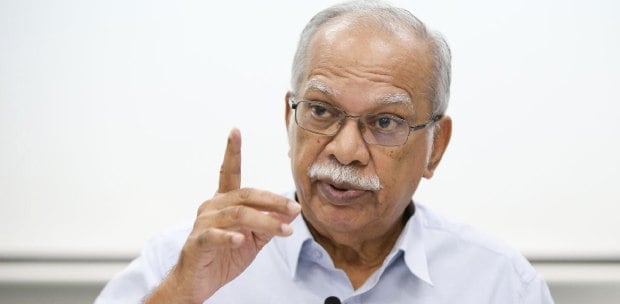AS much as we try to avoid it, we will constantly be confronted with disappointments in our life. In your career, there are times when you will feel disillusioned and have seemingly insurmountable obstacles.
Your colleagues can "throw you under the bus", your staff disappear and leave you in the lurch, and your bosses might refrain from protecting you when they should.
In your private life, people will let you down, cheat you and generally paint you in a bad light. And most painful of all, you will disappoint yourself with your own behaviour at some points in your life.
We cannot insulate ourselves from disappointments and failures. But we can learn how to bounce back from setbacks.
In my career, I've had to deal with unsympathetic bosses who neither inspired nor engaged with me.
In business, I have been cheated by business partners and have fallen prey to scams.
As an employer, I have had employees abscond without rhyme or reason, and others who have left and decided to soil my company's good name.
In my personal life, I have had family members and close friends hurt me even though I've been nothing else but decent with them.
And, of course, I have had to be cognisant and accept my own failures that have led to some of the above disappointments. Perhaps you are dealing with a disappointment right now, too?
Whether someone you trusted and loved let you down or something in your work or business didn't go right or your life isn't where you want it to be, at times, the world just seems to have a way of kicking us, especially when we are already down.
The point is not to allow these setbacks to control your emotions and end up defining your progress.
Naturally, some disappointments are small enough and have a minimal impact on you, but there are others that will make you feel like the end of the world is imminent.
Obstacles are a reality in any endeavour but the disappointments you face can serve as a catalyst for your personal growth. You will have to learn from them to advance, rather than regress with fear and debilitation.
Here are a few things that I recommend you consider as you work on overcoming disappointments.
Start by working on having a strong purpose drive. This forms the foundation for any recovery. For example, civil engineers will always test the strength of any material to determine its ability to withstand an applied load without failure.
Your ability to rise from any discontent is based on your mental and physical strength. A keen sense of your strengths and weaknesses, coupled with a strong support network, will help you.
You then have to take ownership of your setbacks. It is much easier to just get upset with the world when you feel disappointed.
Remember that your biggest failing is when you do not take responsibility for your actions.
Process your hurt but be vigilant against playing the blame game. In its place, focus on your role in the setback. This will teach you how to avoid the same misstep in the future.
When you take this attitude to manage disappointments, you will find that your mind recalibrates.
While you might feel the pain of your disappointment, you also have to understand that as you work through your emotions, things will only get better. This will help you see opportunities for progressing out of a mindset that is debilitating to becoming more pragmatic about your life.
Truth be told, many of my setbacks have just been camouflaged opportunities.
One more thing that helps you deal with disappointment is to have the right people around you.
I have worked hard at cultivating and surrounding myself with the right support network. My wife, my parents, my business partners and a select group of close friends offer tremendous support, which helps me overcome disappointments.
Be careful not to pick folks who will fuel your anger, or just drive you deeper into self-doubt. Look for people who are solution-oriented, and are skilled at empowering others.
To attract such persons in your life, you must first be only interested in associating with people who are honest and insightful. Constantly seek out individuals who have verve, vigour and enthusiasm for life.
This is the best sort of person to hang out with, rather than the downtrodden types.
Finally, learn to strategise and execute a recovery plan.
I ask my executive leadership coaching clients to do "action-research". This simply means that you need to reflect on your actions, and to keep a tab on how you behave or respond to situations and stimuli.
This will help you understand your own motivations better.
It will teach you to read the signs and signals of behaviour patterns that do not resonate with you. And it will help you create strategies to avoid and overcome similar disappointments in the future.
You will be disappointed at some points in your life. The test is if you can recover from these instances.
Ultimately, this will save you.
The views expressed in this article are the author's own and do not necessarily reflect those of the New Straits Times






